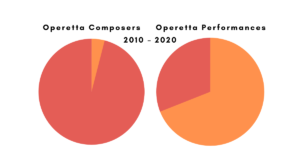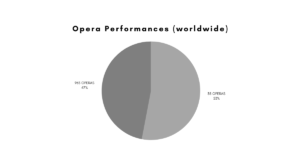Munich, Bielefeld, Weimar – three cities, three different approaches to dealing with corona requirements. At least one of them is really curious.
What you will read in this article:
The Classic Solution: Munich – fewer seats because of Corona
Just in time for the start of the Munich Philharmonic season, five hundred seats in the main hall of the Philharmonie im Gasteig can be filled according to BR information. This number is the result of a step-by-step approach of fifty over one hundred and two hundred people – the hygiene concept has proved its worth. Nevertheless, the large hall with an audience of 500 people would only be used to about 20 percent capacity.
In my opinion, any solution approach that represents a step towards “normal” live operation is welcome per se. However, the political problems are not staying away – for example, complaints are accumulating due to the unequal treatment of small and large houses. Why is A allowed to play, but not B? Why is B allowed to play for 200 people, but C only for 50? Why is C allowed to play at all and D not at all, although D has a much larger room volume? All this offers potential for endless and ultimately unproductive discussions. What alternatives are there? Bielefeld and Weimar show that.
The Digital Solution: Bielefeld – welcome to the Public Viewing
In soccer, public viewing is commonplace. No World Cup goes by without thousands of people all over the world gathering in front of huge screens to watch the event together. Why shouldn’t this also be possible in classical music? Bielefeld shows how: On September 12, the traditional BBC Last Night of the Proms was broadcast live there in the Rudolf-Oetker-Halle, as reported by WDR. Before the broadcast, the Bielefeld Philharmonic played a concert.
What I find particularly successful about this solution is the combination of a strong international brand with local color. Together with the public viewing format, which is far from exhausted in the classical world, this results in an event that appeals to the audience in its entirety.
The Technical Solution: Weimar – engineering against Corona
Germany is the country of engineers. So it would be very surprising if this profession would not also participate in a solution. This is what happened in Weimar: the Bauhaus University there has developed filters for wind instruments that could minimize aerosol emissions, as reported by SWR. Curious: The first prototypes have already been tested by the Staatskapelle Weimar and consist of – kitchen paper and tape.
Of particular interest is the possibility of reducing the aerosol emission of the flute by attaching the filter directly to the mouthpiece – the flute is currently considered the “problem child” of wind instruments when it comes to aerosols. By the way, the Bauhaus University provides the pattern of the filter free of charge as “Open Design” – so nothing stands in the way of further development.
I consider technical approaches such as those of the Bauhaus University in Weimar to be desirable. A hundred years ago, it was still taken for granted that instrument making and musical requirements went hand in hand. Now we are currently facing a pandemic rather than a direct musical challenge – but why should instrument making be passive?
Conclusion: It is encouraging to see that the creativity and inherent interdisciplinarity of the music industry is also evident in the various corona solutions. Any solution, whether classic, digital or technical, that leads to more live music enjoyment while preserving the health of all involved is a good solution.

Jonathan Stark – Conductor
Hello! I'm Jonathan Stark. As a conductor, it is important to me that visits to concerts and operas leave a lasting impression on the audience. Background knowledge helps to achieve this. That's why I blog here about key works of classical music, about composers, about opera and much more that happens in the exciting world of music.






